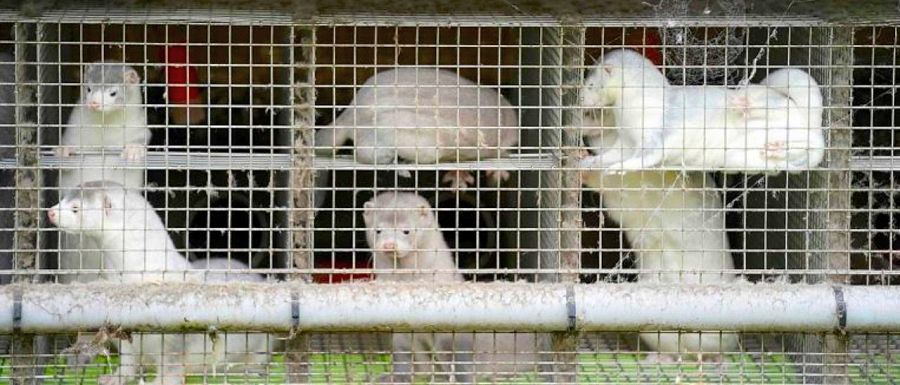CORONAVIRUS: THE KILLING OF MINKSOUNDS THE BELL FOR FUR |
|
Whether it's the health of domestic animals, stalled adoptions or the contamination of several animal species, our animal friends have not been spared by the coronavirus. The latter now affects large-scale farms, including mink, impacting an entire industry. On November 9, Denmark, one of the main fur producers, decided to slaughter more than 17 million devisons for health reasons, and for good reason: last week, Denmark discovered a mutation of the coronavirus transmissible to l human in these mammals. This mutant virus could compromise the effectiveness of a future vaccine. "The virus mutated via mink can create the risk that the future vaccine does not work as it should (...) It is necessary to slaughter all the mink", or 15 to 17 million animals according to the authorities, assured the Prime Minister at a press conference. Denmark is at the top of European production, other countries of the Union are home to these farms such as Poland (5 million), the Netherlands (4.5 million), Finland (1.85 million), Lithuania and Greece (1.2 million). The latter was not spared by the Covid-19 pandemic either: a few days after Denmark, the country declared to slaughter 2,000 minks in order to stem the spread of the virus. In July 2020, nearly 100,000 of these mammals had suffered the same fate in Spain after 87% of the herd tested positive. At the same time, the Netherlands announced the permanent closure of all mink farms from 2021 originally, the country had planned to end in 2024. In order not to compromise the effectiveness of the future vaccine, between 15 and 17 million farmed mink carrying a mutation of the coronavirus will be slaughtered. When fashion goes green ... With these mass slaughterings, singled out by animal rights associations, the entire fur industry is now threatened and, by extension, that of fashion. For years, the use of animal skins has been strongly criticized by some consumers and by industry players who advocate for more ethical fashion, like Stella McCartney. In reaction, several houses had chosen to change their consumption and manufacturing habits: Prada, Burberry, Gucci, Chanel or even Armani have all announced that they will stop using fur (whether it is mink, chinchilla, rabbit or angora) but also exotic skins. Same story with luxury e-commerce sites like Net-a-Porter or Farfetch. Even Elizabeth II announced in 2019 to swap her famous coats for synthetic models, on this occasion making Google searches jump 52% for faux fur pieces. If the fur industry, weighing more than 35 billion euros, has already undergone many changes, Covid-19 could end it for good. |
|
| Britney Delsey for DayNewsWorld | |
 |
|




